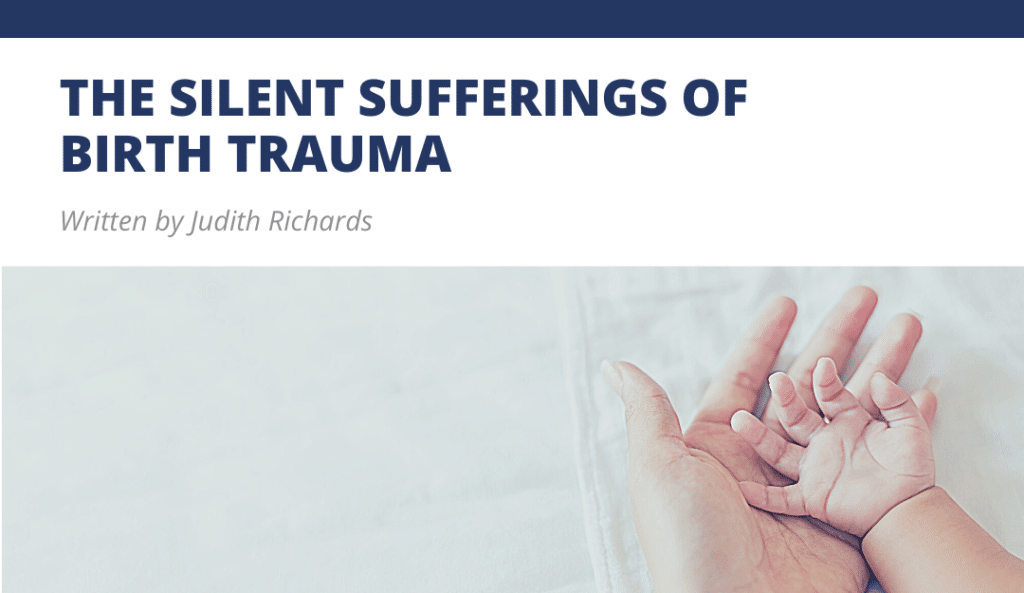Women who have had a complicated or traumatic birthing experience may experience on-going symptoms after the arrival of their baby – from PTSD, with its flashbacks, nightmares, anxiety etc, to post-natal depression, emotional shutdown and inability to connect with their new baby and partner.
It is also common for women to describe their labour as ‘normal’, even though their experience was so very distressing. They are often left confused and feeling that they are “not enough” as a mother.
The causes of a woman’s distress during her birthing experience are many.
A traumatic birth can be described as one that causes a woman to feel any one of these feelings:
- powerless
- confused
- disregarded
- abandoned
- fearful
- unheard
Women who have these feelings during the process of bringing their child into the world have a higher chance of experiencing:
- disappointment
- lack of confidence
- hypervigilance or intense preoccupation with the baby’s health
- feelings of failure
- anger
- post-natal depression
- PTSD
- isolation
- relationship breakdown
- attachment issues with their child
A woman or her baby may have required medical intervention that she just wasn’t prepared for:
“I was pushed toward a caesarean birth by a doctor. We were 10 days past my ‘due date’ and our regular doctor had gone on holidays. The pressure my husband and I felt was intense. After each appointment with various professionals we were left feeling helpless, and at the whim of their policies. Having previously experienced depression, I was rapidly declining mentally.
I cried myself to sleep the night before the ‘planned caesarean’. I cried the next morning on the way to the hospital. Watching the sunrise over the mountains on the way to the birth of my second son should’ve been an exciting and beautiful experience. But I was devastated and submitted myself to the process.
I cried throughout the ‘preparation phase’ before surgery. My husband was extremely supportive throughout the whole experience, but I still couldn’t muster up a smile. I cried in the operating room.
There was so much joy when my dark-haired little boy was finally lifted from my womb. Our first cuddles were carried out while I was being sewn up.
Then the recovery began. It was not explained to me that I would be woken every 3 hours to be jabbed in the thigh with pethidine. It was not explained to me what support was available. The comments on my paperwork said, “planned caesarean”. How could I be so angry, yet so in love with my baby?
I felt that I had failed in birthing my child vaginally. I felt guilty about my sadness at what was supposed to be, a joyous time. This carried over to my time at home in the first few months. I was on-edge with the baby and very, VERY distressed every time he cried.”
Sara (Mum of 3, Melbourne)
TRTP resolves the trauma of a distressing birth experience.
TRTP resolves the resultant symptoms.
TRTP leads a woman to empowerment, healing and control.
If you are a therapist wanting to know how you can be trained in TRTP, click here.
If you have experienced birth or hospital trauma yourself, and are seeking help, please click here.


